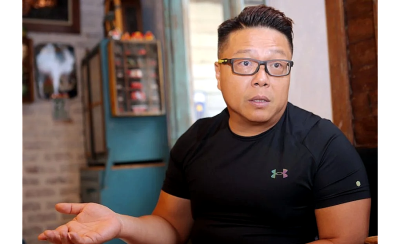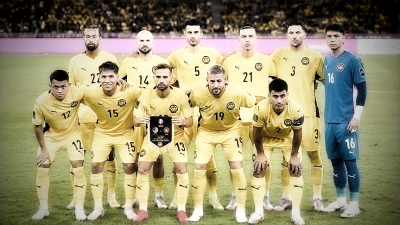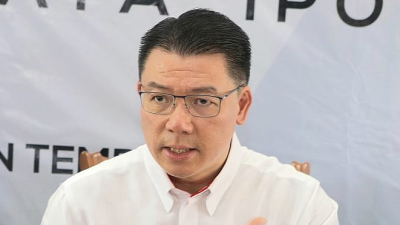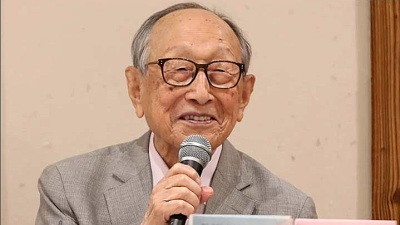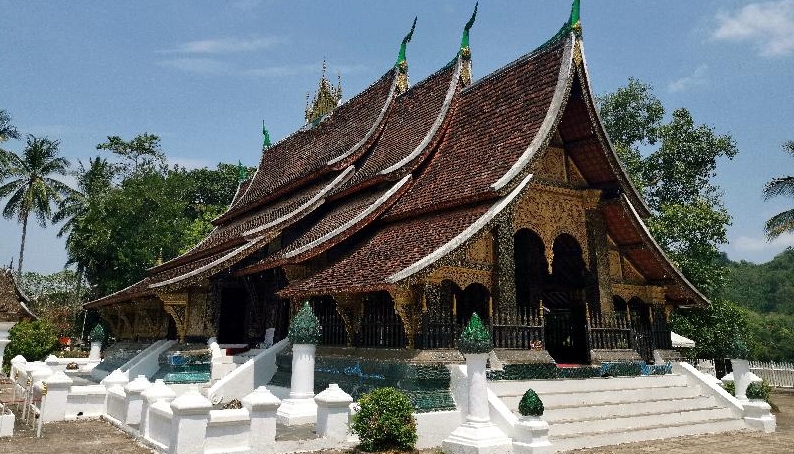
We paid a visit to septuagenarian Xu Wen Hua, president of Association Chinoise de Luang Prabang, who doesn't quite look his age and is still very energetic.
"Come here! Let's have a cup of tea first, and I'll tell you the story later," he said in a relaxed manner.
His timely interruptions have made us learn to slow down our pace and enjoy the aromatic tea he offered.
60 dollars to Thailand
Xu's great grandmother came to Laos from Thailand in 1933.
Back in those years people who wanted to leave China would prefer to go to Thailand or Singapore.
"My mother told me one needed 40 dollars to go to Singapore, and 60 to Thailand."
And people said if they went to Singapore, they would become coolies. So Xu's ancestors decided to start a new living in Thailand.
Prior to 1975, 95% of Chinese residents in Luang Prabang were businessmen and all the invoices issued were written in Chinese. Most of the people there spoke with one another in the Teochew dialect.
Like in Vientiane, after 1975 the Chinese people in Luang Prabang began to escape to the refugee camp in Nong Khai, Thailand.
After they successfully crossed the Mekong into Thailand, they would throw away their Chinese passports and waited to be put in the refugee camp.
Luang Prabang today is no longer the same as in those times. All the signboards and notices are in Laotian and not Chinese.
Xu said many Vietnamese people came here to do business nowadays, and Chinese only make up 1% of the local population.
Although this place used to be a "Teochew village", there are only about three or four households still speaking the Teochew or Cantonese dialects today.
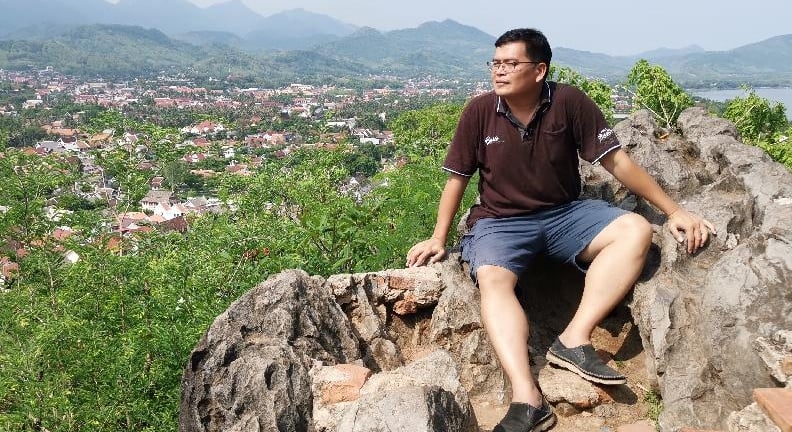
First Chinese school
Chinese gangs were already present in Luang Prabang in the 1930s, including the Hainanese and Teochew gangs, and they existed until after the Sino-Japanese war in 1945.
The Chinese Association was subsequently established with the objective of protecting the rights and well-being of the Chinese people in town.
Several months later, the association set up the first Chinese school in 1946, and later changed its name to Association Chinoise de Luang Prabang in the 1950s.
As for the school, its name had changed several times throughout the years, and was once known as Xing Hua and Chung Cheng before a permanent name Xin Hua School was adopted in 1978.
Xu Wen Hua was a graduate from this school.
Recalling the past, he said the school was severely lacking qualified teachers back in those years, and some of the soldiers from 93rd Army Division from the Chinese National Revolutionary Army came here to teach after their retirement from the military.
In the 1960s, the school began to have graduates from Taiwan university to teach there.
"We were still using the Hong Kong version of textbooks at that time," Xu said.
"We had Chinese language lessons every day. Dialects were not allowed in the school. We would be fined for speaking Teochew."
Survival first
The number of students and teachers dropped sharply due to political instability.
"In order to get more students, we decided to teach Lao in the morning, and Chinese and English in the afternoon."
Unexpectedly, majority of students chose to learn English, resulting in the gradual loss of Chinese language students.
"The relationship between Laos and China deteriorated around 1988. As a result, many did not want to learn Chinese."
To keep the school running, Xu had to introduce English teaching, resulting in the increase in student enrollment to 600. Many nevertheless criticized him.
"My concept is that we need to feed ourselves first before talking about other things. We'll develop Chinese language education only after we have enough food to feed ourselves."
Xin Hua School set up an express Chinese language class in 2006. Anyone could join the class irrespective of age, qualifications or professions.
The number of students of the Chinese class reached 640 in 2019.
Currently the school is a kindergarten and full-day primary school. When asked why there isn't a lower or higher secondary class, Xu admitted that students used to proceed to Laotian schools after finishing their primary school education.
However he said the school had a plan to start high school curriculum in 2020.
"According to the education ministry's guidelines, we can only teach language and not other subjects.
"We hope to have a full-Chinese school in future and pass down the traditional Chinese culture to the future generations."
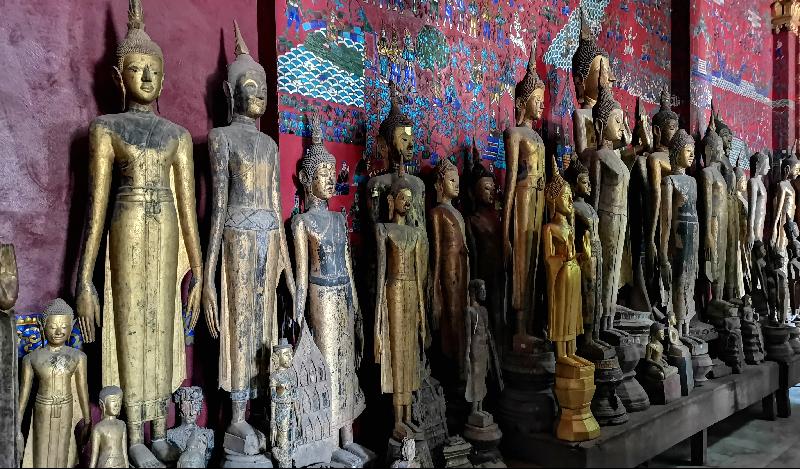
ADVERTISEMENT
ADVERTISEMENT






